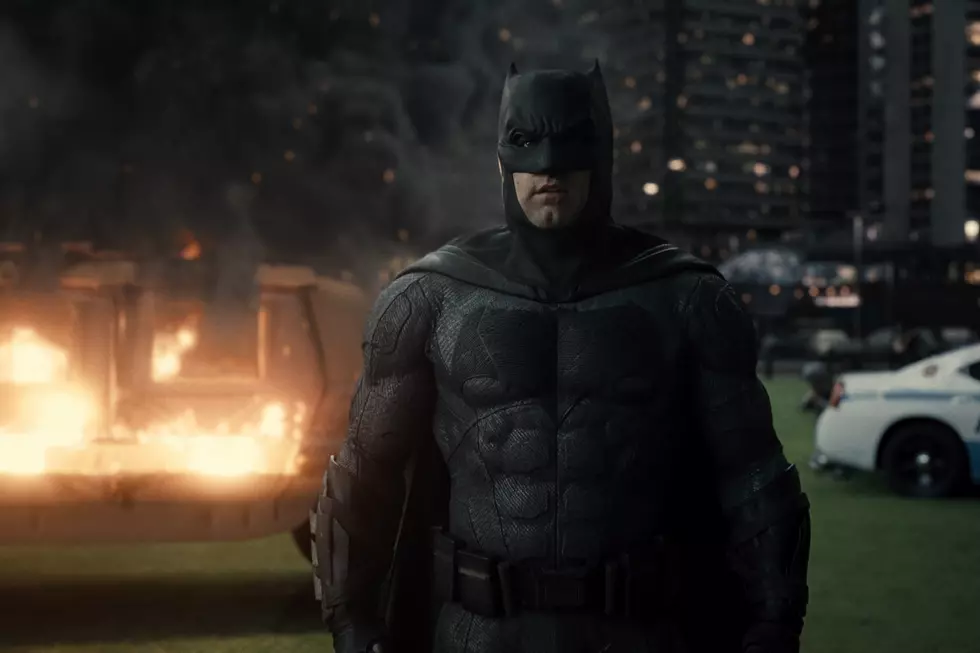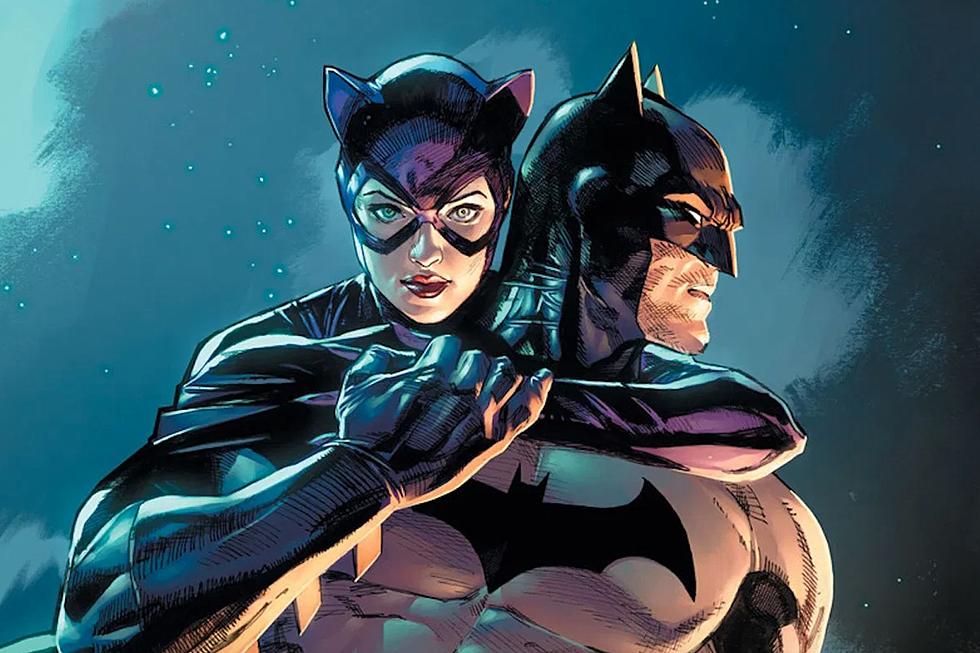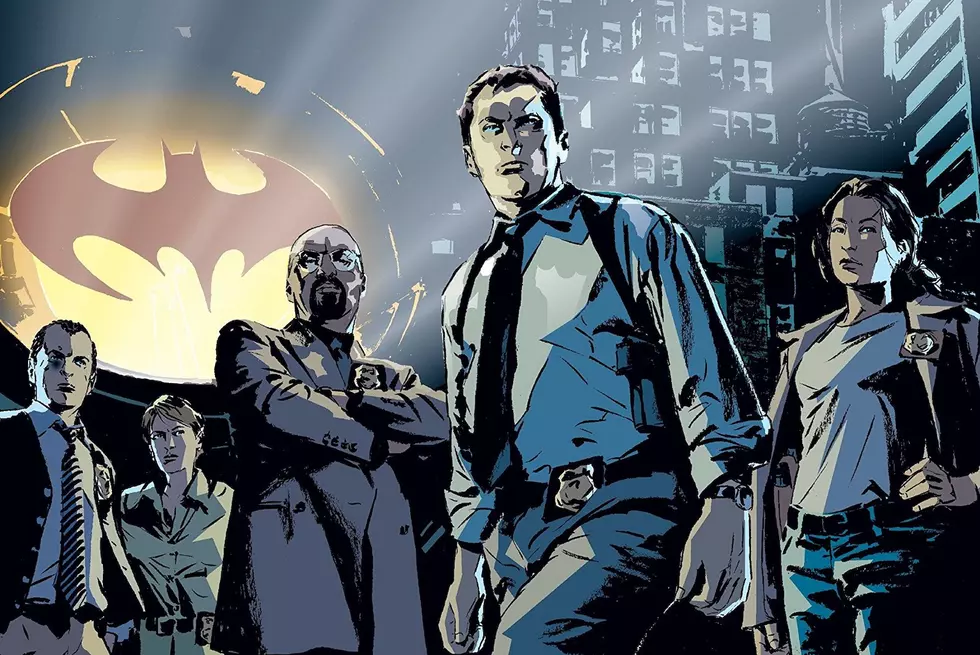
Ask Chris #250: Misinformation About Batman
Q: As a Batmanologist, what misinformation about Batman do you wish you could set everyone straight on? -- @daveexmachina
A: Let me answer that question with a question of my own, friend: How much time do you have?
If there's one thing that ought to be apparent after 250 of these columns, it's that I have some very clearly defined ideas of how Batman works. At the end of the day, though, as firm as those opinions might be, we're still talking about a character who's appeared in thousands of stories by hundreds of creators, filtered through everything from editors who demanded more gorillas on the covers to the restrictions of the Comics Code to fan reaction to TV writers poking fun at the Very Serious Idea of superheroes, and then fans-turned-creators who are reacting to all of that and picking out the pieces that they want to highlight, so there's a lot that's up for debate. Except, you know, for the stuff that's not.
Take, for example, the old argument about whether Batman should kill his enemies, and how important that idea is to the core of his character. I definitely know which side of that one I fall on, and it's something that I feel pretty definitive about, but even I have to admit that it really is an argument.
There's textual support for both sides of it across all media, and as much as I'd put it as one of the most important things about the character, something that's existed as part of how he works since 1940 and ties into a whole lot of different aspects of why he works so well, there are plenty of stories put out by Warner Bros. and DC Comics where he blows up factories, shoots vampires, and uses crooks as a human shield against uzi fire.
I mean, yes, if your argument is that Batman should kill people (and not that he has killed people), then I'm probably just going to think you're wrong and there's nothing you can show me that's going to change that, but I can never tell you that there's not evidence.
The thing is, a lot of those arguments come from a place of trying to apply a kind of realism to Batman, and that's where you're going to run into a lot of problems. I've always said that there's one definitive answer to why Batman doesn't kill the Joker --- aside from the one about how he lives in a world where ghosts exist and literally no one wants to deal with the Ghost Joker --- and it's because people really like buying stories about him. If you kill the Joker, you can't do more Joker stories, and that's a whole pile of money that I don't think any of us would leave just sitting there on the table.
Admittedly, that's not a very satisfying answer, because it doesn't address the relationships between the characters --- the thing that, in theory at least, has kept us all adding to that big ol' pile of money over the past 75 years. But at the same time, it's an answer that actually underlines the central fact of the matter, which is that these are not characters for whom "realism" is a central concern.
Batman's not just a fictional character, he's a fictional character who's built for a very specific genre with a very specific set of rules. As a wiser person than me once said, it's a genre where thousands of complicated, interconnected stories are all built on the idea that nobody can see through a disguise that consists of a single pair of glasses, and once you start tugging at the strings and trying to make them more realistic, the whole thing falls apart.
That doesn't mean that you can't apply a certain kind of logic to it, or even that you can't figure out entertaining ways to justify a few of the weirder genre conventions. Yet there are always going to be certain things that you have to accept if you're going to read these stories, things that just don't work if you remove them from their specific context. It's part of the price of reading the story --- if you want to read about a guy dressed as Dracula who drives around in a rocket car getting into fistfights with people who rob banks with laughing gas and crossword puzzles, you're just going to have to accept that you're reading about a world that's not quite real.
Which brings me to the one misconception about Batman that bugs me the most, because it's simultaneously the most persistent, the most ridiculous from a storytelling standpoint, and the easiest to disprove: The idea that Bruce Wayne doesn't actually do anything to help Gotham City, and that Batman is just a rich man selfishly and violently lashing out at the lower class.
Like I said, it's a persistent idea, largely because it requires applying the absolute bare minimum of real-world logic to a cartoon character for children. It's a criticism rooted in the idea that trying to end all crime by dressing up in a cape and punching muggers would never work in the real world, which is something that everyone already knows. It's like getting mad at Knight Rider because cars don't talk.
The argument that usually comes as a corollary is that if Batman really cared about ending crime, he'd spend his annual rocket car budget on social programs in order to attack the root causes of crime, and that's where we run into this being a snooty dismissal that just doesn't work. The textual support on this one ain't ambiguous in the slightest: Batman does do all that stuff, and he has been for decades.
The panels I'm using to illustrate this point are all from a pretty narrow run of comics --- one that just happens to be conveniently collected in DC's latest paperback release, Starlin, Collins, Aparo, Cockrum and Cowan's Batman: Second Chances --- but the idea of Bruce Wayne as a philanthropist has been a part of the character since very early in his history. Bruce Wayne being primarily known in Gotham City for his charitable work specifically goes back to at least 1964 and the origin of the Wayne Foundation (then known as the Alfred Foundation, it's complicated), and that's not the only charitable organization that he's been shown to be behind over the years.
It's actually only in the '80s that the idea of Bruce Wayne as an industrialist rather than strictly a philanthropist comes to the forefront, and even then, the charitable work is always there and always pretty prominent. And it keeps coming up because it works within the story if he's attacking crime at every level, right down to being one of the guys who funds the mental hospital where he sends all his bad guys so that they can at least try to get better.
But then you get to the point in the argument about how he could do so much more if it wasn't for the billion-dollar stealth jet shaped like his own logo, which is about the point where it's clear that the argument is ignoring two very important things, the most crucial of which is that none of it is real.
Listen, I will 100% agree with anyone who says that in the real world, a billionaire with concerns about crime would be better served by putting their money back into the community rather than buying a stealth jet, but that's because we live in a world with things like finite amounts of money. Batman, on the other hand, is not real, and is therefore exempt from these concerns. "The Wayne Fortune" is a nebulous concept that exists as a plot contrivance rather than being an actual number, so there's not a conflict between spending it on Batmobiles and grappling hooks and spending it on, I don't know, candy to support the Gotham High School Marching Band.
If you sit down and total up the cost of all of Batman's equipment, vehicles, and other crime-fighting paraphernalia, then just write the same number down for what he donates to charity every year. If that number seems too small, double it. Keep doing that until you are satisfied, subtract it from Bruce Wayne's net worth, and I promise you, he will still have exactly as much money as Scrooge McDuck.
The other important thing here, though, is the most obvious thing in the world: Batman exists in a world where it is necessary for Batman to exist.
I mean that on every level, too. It's a world that's specifically built around him because it's his name on the cover of the comic, and as a result, it presents us with a world where he has to exist. In the real world, yes, it is a terrible idea to put on a cape and swing from buildings, but in Batman's world, it's not only a completely logical course of action, it's an effective one. It works, and we know this because we are shown a world built around that idea.
And because it's a world where Batman is necessary, then the problems that he faces are necessarily problems that can only be solved by being Batman. That's part of the buy when you sit down to read a story about Batman --- about any superhero, really --- that there are things that can only be dealt with in a very specific way.
That, I think, is the pin that pops the balloon of the whole "if he really cared he wouldn't be Batman" idea: You can donate the entire trillion-dollar Wayne Fortune to local schools, but that's not going to really help anything when there's an evil clown poisoning the water supply right now, you know?
That said, there's a level where I do get where the complaints are coming from, and to be honest, it's one of the reasons that I vastly prefer stories where Batman's fighting supervillains to the ones that try to go with the gritty, noir-inspired route of having him deal with more realistic criminals. That's material that does lend itself to the fascist one-percenter interpretation of Batman, even if everything around it is built to support a different idea.
I'd even go as far as suggesting that it's one of the reasons that Batman developed memorable supervillains quicker than anyone else, because of how important it became to the character to battle against things that were larger than life.
Really, though, the guy's on the Justice League, and denying that --- and specifically building an argument around the idea that you can apply real-world solutions to fantastical, superheroic problems --- is refusing to engage with the premise on its own terms.
And for real, a comic about a rich guy sitting down and cutting checks for 20 pages is the worst idea ever.
Ask Chris art by Erica Henderson. If you’ve got a question you’d like to see Chris tackle in a future column, just send it to @theisb on Twitter with the hashtag #AskChris.
More From ComicsAlliance









